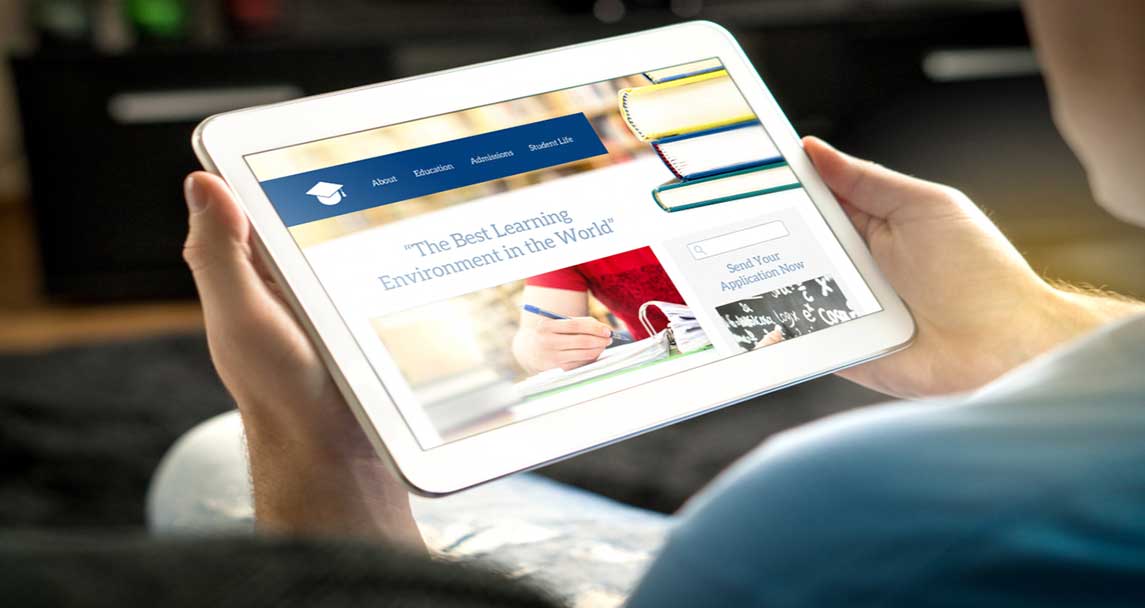Get Schooled On Digital Marketing in the Education Industry

In Australia, the education industry is a $121 billion market and according to IBIS World has expanded at a faster rate relative to population growth in the past five years.
In fact, the booming industry has been identified as a strong contributor to Australia’s economic prosperity, with international education being our country’s largest service export. Despite the booming industry, marketing professionals in the education sector are constantly challenged in finding ways to engage their target audiences and are turning to various digital marketing and advertising services as the solution.
Digital marketing has been used in many industries as the preferred method to engage with prospects, and the tertiary education sector is no exception. In recent times many Australian institutions including UNSW, Swinburne University, Deakin and the University of Sydney, just to name a few, have completely overhauled their marketing methods. These institutions have placed a greater importance on online marketing services and have begun to include some aspect of digital media as a way to engage students and reach other potential applicants, both domestically and overseas.
The University of Wollongong, for example, implemented marketing automation technology in 2016 that better engaged consumers through the recruitment process and provide personalised interactions to improve enrolments. In fact, the university captured 7,000 potential prospects from around the globe within 12 months as a result of their digital marketing overhaul.
So why are digital marketing services so useful for the education industry? Well, traditional marketing methods are heavily reliant on outbound marketing techniques where messages were predominately ‘one-way’. However, many digital marketing methods including social media marketing, search engine optimisation and content marketing services are a form of inbound marketing, which aims to attract qualified prospects and convert them into leads with relevant and valuable content. In fact, if you think about it, educational institutions are meant to do exactly that – disseminate relevant and valuable content – making digital marketing even more essential.
In the education industry, websites are the primary port of call for valuable and relevant information and therefore, play a huge role within an integrated digital marketing strategy for educational institutions these days. While it’s pretty difficult to find an educational establishment without a website to reach current and potential students at the very least, few understand the importance that a website can play in facilitating a more engaging brand experience for consumers, along with establishing trust in a brand.
In fact, in 2016, Melbourne’s Deakin University, launched a complete makeover of their website in order to drive digital innovation and create a memorable experience for particularly their students. By placing a greater focus on the user experience and creating personalised consumer journeys for students in a digital habitat they’re very familiar with, prospective and current students become not only more engaged but more receptive to the marketing messages they receive.
Not to mention, technologies such as chatbots and virtual reality are becoming increasingly popular and provide exciting opportunities for the education sector to continually engage students on their websites. Digital hangout including video chat app ‘House Party’, which already has 1 million daily active users and Facebook’s similar app ‘Bonfire’, which is currently not available in Australia, could potentially provide students, parents, and educational staff the opportunity to connect face-to-face instantly. This could allow the key stakeholders to get the answers they’re looking for more easily and instantaneously while allowing for a more personalised, convenient and personified experience with the institution beyond simply browsing digital images and reading content.
Taking this one step further, Facebook has also tapped into the virtual reality space, again providing greater engagement and convenience for students. Facebook Spaces allows individuals to socialise in completely virtual settings and follow their friends around in real time. While the adoption of virtual reality headsets is still in it’s early days, such technology places great opportunities for the digital experience in educational institutions, potentially allowing students to experience campus life before enrolment or access virtual campus tours. Such technology can even potentially alter the way lectures, classes and seminars are delivered in the future.
And this is even more important as the popularity of online courses and degrees increases and becomes the learning method of choice by students. In fact, according to IBIS World, the online education industry in Australia is already valued at $5 billion alone. From private institutions to the major universities, online open courses are becoming a more popular method of learning and are heavily reliant on digital marketing methods and technologies to engage their digital native students.
While websites and the exciting evolution of technologies surrounding it are beneficial it are beneficial for tertiary organisations, social media marketing is more conventional and establishment in today’s market and is another essential digital marketing strategy that needs to be acknowledged by educational institutions. Previously, institutions heavily relied on word of mouth to support the reputation of the facility and communicate the benefits of that particular establishment.
However, social media has become the digital age’s answer to the historically accepted marketing form, with the added benefit of measurable and quantifiable results. In fact, social media works in almost the same way as word of mouth, where users talk about experiences that genuinely satisfied their expectations, while their friends find this more valuable than hearing such messages from the institution themselves. It also allows one-to-one personalised conversations with prospective students despite their location, again allowing for increased convenience and elevated engagement.
Undoubtedly, digital media and online technologies aren’t just having effect on marketing within the education industry, it is transforming the way student’s engage with educational institutions as a whole. Digital marketing will have a great place in education in the future as students continually become digitally savvy and adopt new exciting technologies. Such advancements in technology allows educational institutions to continually innovate and explore opportunities to engage with students in a more personalised and convenient way that creates an exhilarating experience for them.
At RGC Digital Marketing, we are an online ad agency based in Sydney and are experienced in connecting consumers to brands through relevant and engaging content. We specialise in various online marketing services including social media marketing, content marketing, SEO services and website design in Sydney and continually aim to pioneer innovative technologies that will benefit our client’s campaigns. For more information on digital marketing in the education industry, please contact Richard on 1300 770 985 or email richard@rgcadvertising.com.au


